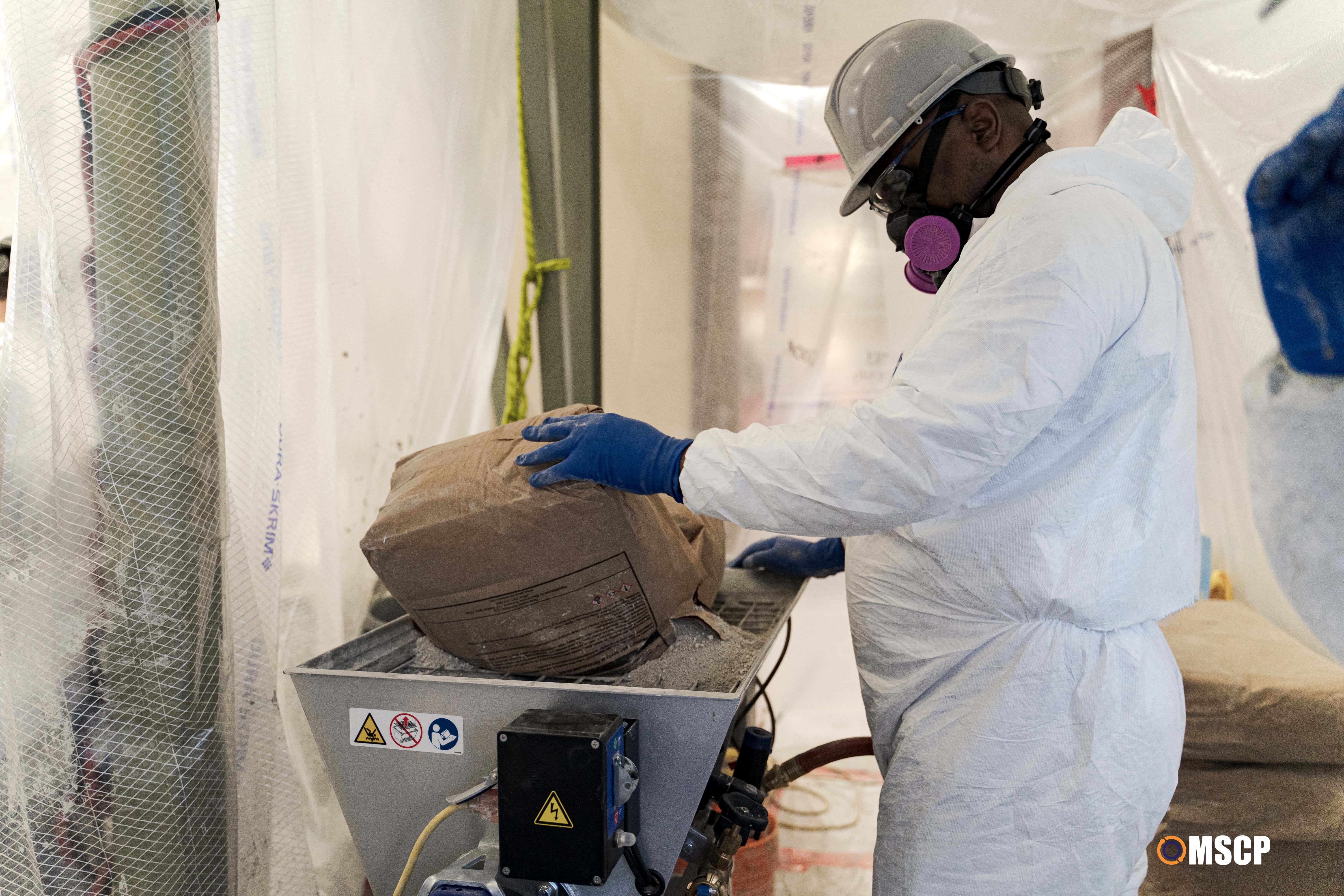Over the past several years, increased expectations have been placed on Canadian businesses to demonstrate their commitment to “going green” by adopting sustainable practices. Sustainability includes how a company handles its waste through recycling and repurposing.
At MSCP, we take our commitment to managing our used materials in an environmentally responsible manner seriously. We believe that by acting with integrity today, we’re helping protect the environment, support the materials supply chain and set up a sustainable future for upcoming generations.
Here are some examples of how MSCP is leading the charge in recycling and repurposing heat management materials at the end of their lifecycle.
Mineral Wool Insulation
Rock or glass mineral wool insulation is the most widely used insulation in the industrial market. Mineral wool is naturally moisture-resistant and if it gets wet can be dried and regain its insulating effectiveness, making it the great choice for heat management in oil and gas production facilities.
It’s also prevalent in the construction industry for its ability to block sound, improving a building’s ability to withstand acoustic invasion. Mineral wool also acts as a fire barrier because it won’t burn until temperatures exceed 1,000°C (1,800°F), slowing down the spread of flames and giving fire services more time to get a fire under control.
However, once mineral wool has reached the end of its life, many companies aren’t sure how to dispose of it responsibly. For years, mineral wool has been recycled and repurposed in Europe. In Canada, MSCP is looking to innovate mineral wool recycling and make a positive difference by diverting as much of it as possible from landfill sites.
We’ve recently launched a program in which we accept mineral wool from companies for recycling. Our goal is to partner with vendors who will use our cleaned, broken-down mineral wool products in other insulation applications.
For example, insulation manufacturers can transform rock mineral wool scrap into “recycling bricks” that can then be used to build new insulation boards. Using recycled products cuts the cost of sourcing raw materials and the energy costs to produce the product. The process of manufacturing mineral wool and fibreglass insulation boards is extremely energy-intensive. Using recycled materials that don’t require the melting and fiberizing of input materials can save insulation manufacturers significant energy.
Using less energy also helps reduce carbon emissions, which are believed to contribute heavily to global warming. This means a shift to using recycled products can contribute enormously to a more sustainable society, increasing its value to the worldwide push against climate change.
Mineral wool can also be repurposed for applications such as:
- Using glass mineral wool waste to manufacture new ceiling tiles
- Adding mineral wool fibres to fine-grain concrete as a reinforcing component
- Incorporating elements of the mineral wool fibre in food production to safely minimize weed growth and improve water absorption by crops
As technology develops and recycled or repurposed mineral wool becomes more common, we’re hoping for a ban on mineral wool in landfill sites. We’re proud to play our role in that extraordinary transformation.
Read More: Our Services
Power Cables, Instrument Cables, And Related Metal Components
We’re currently partnering with forward-thinking wire recyclers on developing self-regulating and mineral-insulated heating cables recycling programs. Currently power cables and instrument cables are already mainstream in our recycling program.
Metal components used in heat management, such as metal cladding for insulation, junction box stand-offs, resistance temperature detector (RTD) housings, cable trays, bandings, and stainless-steel tie wires, can also be recycled to be used in creating new parts.
Electronics And Wooden Pallets
MSCP ensures that all old computers, tablets, printers, circuit boards, and other electronics are disposed of for recycling and avoiding landfills.
We also recycle wooden pallets for repurposing in other products and applications.
Paper And Office Equipment And Supplies
With so much technology at our fingertips, MSCP avoids using paper in our day-to-day operations. We believe this practice has stopped hundreds of pounds of paper from being purchased, shredded, or disposed of every year.
Reducing our paper use has also significantly lowered the number of related items potentially heading to landfills, such as old printers, old filing cabinets, printer ink cartridges, pens, file folders, and labels.
These practices also result in cost savings on purchasing paper-related supplies and equipment, allowing us to use those funds to further invest in recycling initiatives and new technology that helps us better serve our clients.
Recycling – An Ongoing Commitment At MSCP
Historically, landfill sites have been the first choice for disposing of waste. MSCP is dedicated to making landfills not an option but a last resort.
We’re continually innovating to cut down on waste in our shops and on our job sites by utilizing our expertise around the materials involved in heat management and finding effective solutions that support the environment.
If you’d like information about participating in our recycling initiatives, contact us anytime. We’d love to further share our vision for a more sustainable world.



